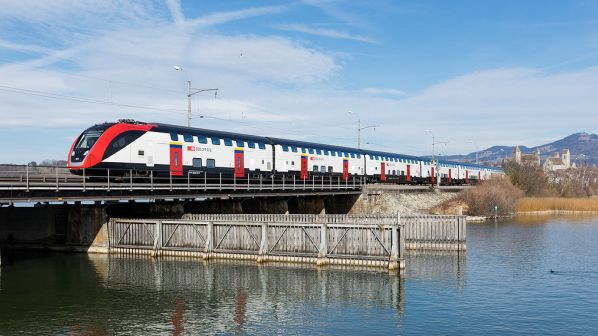According to Bloomberg, Alstom remains in advanced talks with Bombardier over the possible takeover as the Canadian firm seeks to offload assets following a costly expansion in aerospace. News of the proposed deal was first reported in January.
Bombardier’s overall order intake increased 1% from $US 9.9bn to $US 10bn in 2019. However, adjusted Ebitda dropped 75% from $US 851m to $US 213m. Ebit dropped 97% from $US 774m in 2018 to $US 22m in 2019.
Difficult year
The results capped off a difficult year for the manufacturer, which was marked with delays and issues with the supply of trains as well as losses from its aviation segment. The announcement of the preliminary results on January 16 resulted in a 36% fall in Bombardier’s share price to a 52-week low of $US 1.14. However, this has since recovered to $US 1.63, still just more than half of the 52-week high of $US 3.08.
The company confirmed that it has fully exited the commercial aerospace industry, selling its remaining interest in the A220 partnership with Airbus. Bombardier’s commercial aerospace business lost approximately $US 400m in 2016 and was consuming approximately $US 1bn in cash annually. The company says addressing this portfolio was a fundamental step in its turnaround plan.
“During the past year, Transportation continued to progress through its turnaround, by re-synchronising production and resetting certain project delivery schedules, while also investing to support in-service reliability improvements and funding additional manufacturing and engineering capacity,” the company says. “The higher than anticipated cost to implement these initiatives and to address late-stage legacy projects, mainly concentrated in Britain, Switzerland and Germany, led to lower earnings and free cash flow for the segment.”
Bombardier completed delivery of several large train orders during the year, including for the Metropolitan Transportation Authority (MTA) in New York, Crossrail in Britain and Toronto Transit Commission (TTC) in Toronto.
Progress was also made in achieving key milestones on other major projects towards the end of the year, including in-service reliability improvement on the Twindexx trains supplied to Swiss Federal Railways (SBB) and the certification of the multi-unit software for London Overground EMUs in Britain, paving the way for the delivery of trains on this project and subsequent Aventra contracts in Britain.
However, in January German Rail (DB) stopped acceptance of the remaining 25 IC2 double-deck push-pull trains on order from Bombardier following a series of high-profile failures in recent weeks.
Transportation’s backlog grew with $US 10bn in new orders, and a book-to-bill ratio of 1.2 for the year. The total backlog reached $US 35.8bn at year end. Approximately 70% of the orders received in 2019 came from service contracts, signalling projects and options on rolling stock orders, carrying lower execution risk. The services and signalling share of the order backlog increased to 48%, up from 42% in 2018.
Canadian pension fund CDPQ purchased a 30% stake in Bombardier Transportation through BT Holdco for $C 1.5bn ($US 1.2bn) four years ago. However, Transportation’s results for 2019 did not reach the performance targets underlying CDPQ’s investment, meaning that for the 12-month period starting on February 12, Bombardier’s percentage of ownership on conversion of CDPQ’s shares will decrease by 2.5% to 67.5%.
Outlook
Despite the poor results in 2019, Bombardier predicts double-digit organic revenue growth to more than $US 15bn in its 2020 consolidated outlook. The company says this growth will be supported by the continuing production ramp-up of the Transportation division, driven by the “solid orders” from the past few years.
Adjusted Ebitda and adjusted Ebit are expected to increase to approximately 7% and 3.5% respectively, mainly from the acceleration of Global 7500 aircraft deliveries and gradual margin normalisation at Transportation.

